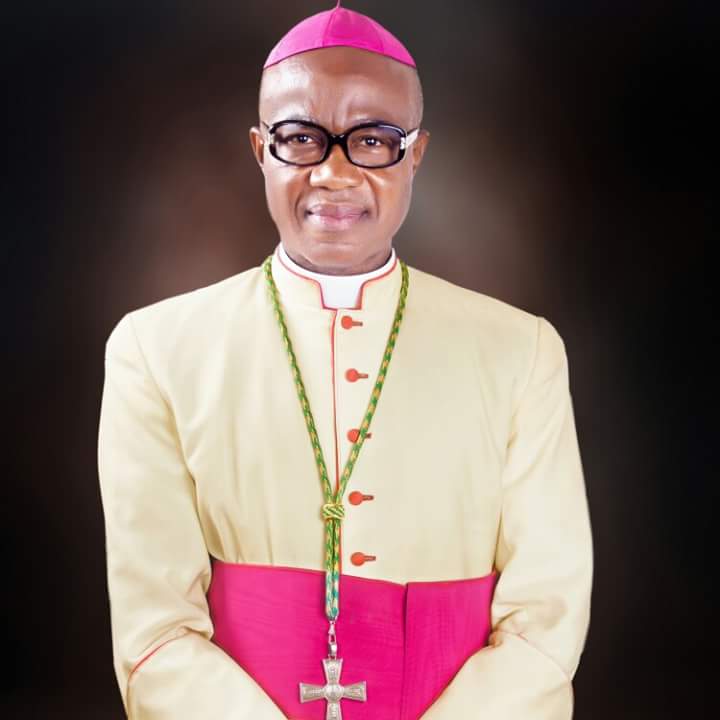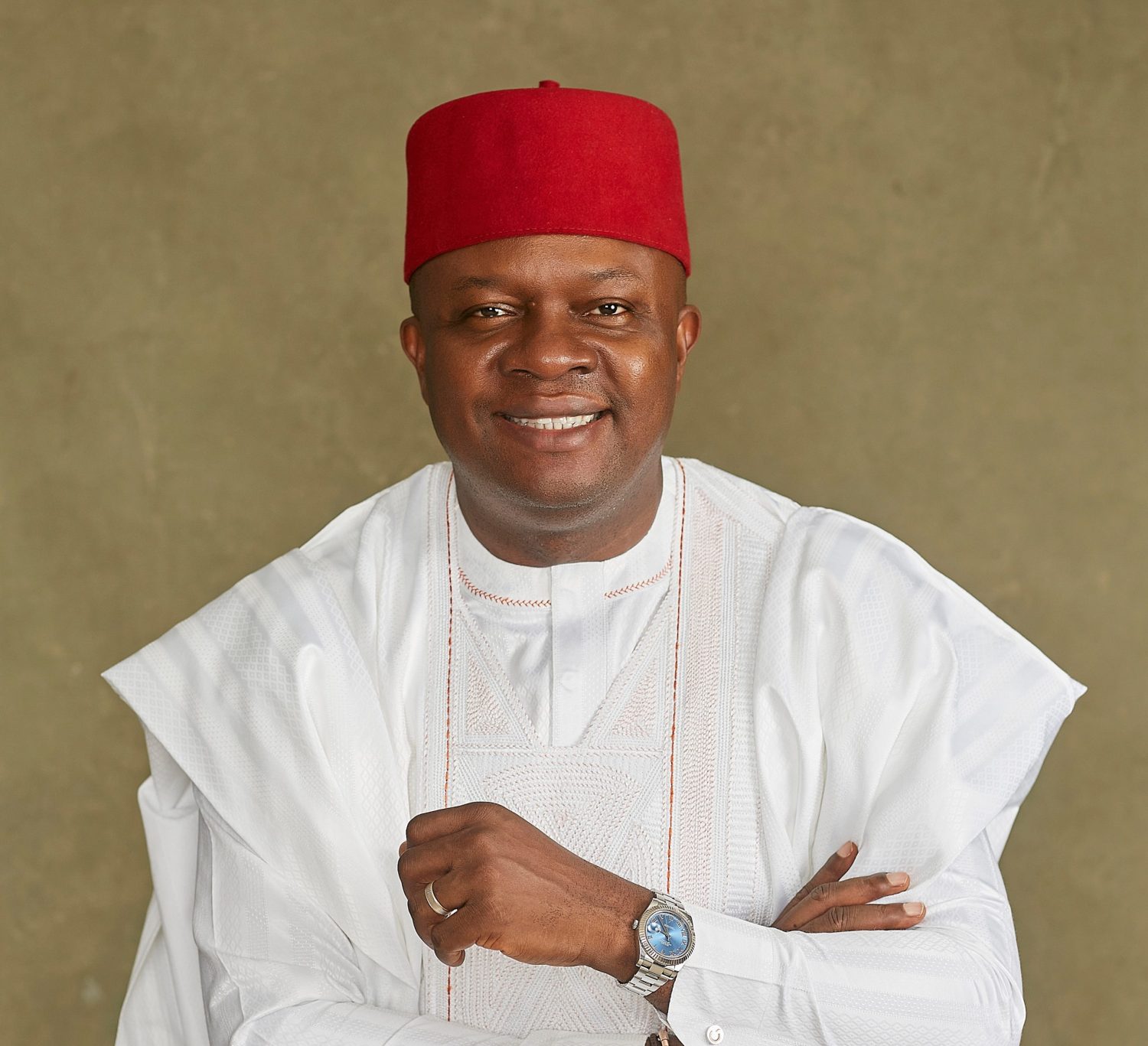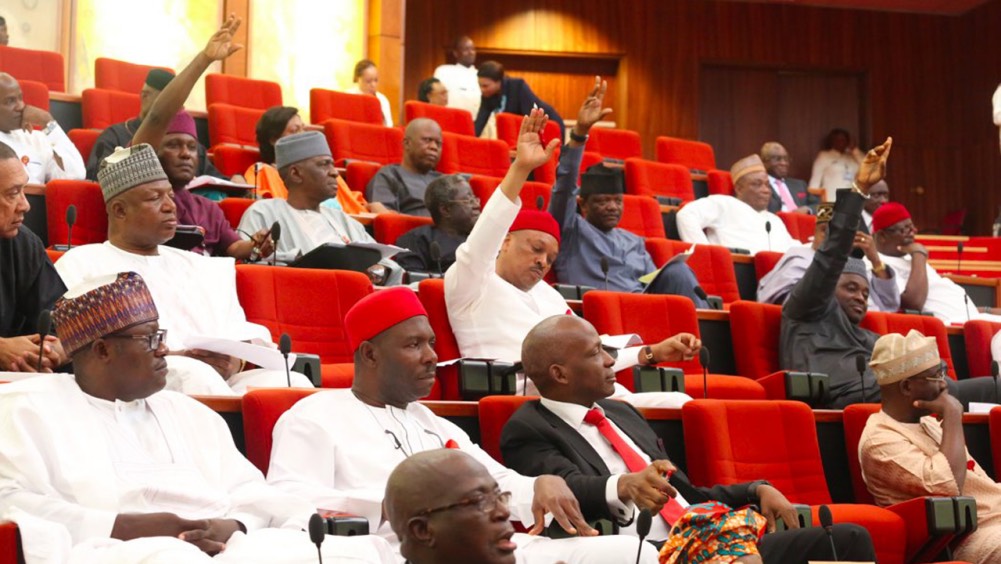
[dropcap]T[/dropcap]he birth of a child heralds the advent of an event of epochal significance, for it announces and revalidates humanity’s continuity and perpetuity. Hence, traditionally among many cultures, the coming of a child into the world is hedged with ceremonies, which situate the child in a relationship of the greatest intimacy and relevance with his community. The communal naming ceremony and baptismal initiation rites symbolically welcome the child into the world and assign him with a unique identity and personality which insert him in currency of being. Thus, generally names are expressions of historical antecedents and, are of cultural significance that form an intimate part of the economy of man. In it, one is inserted into a dynamic relationship with the human family and the family of God in which one subjectively appropriates salvation.
Too often, the question is frequently asked: what is in a name? And too often the answer ripostes: ‘everything’. Is it by accident of birth or by some inexplicable reason that Archbishop Valerian’s parents named him Maduka? – a name he has so perfectly vivified and personified. It is preposterous to assume that the hand of God was not manifest during the naming ceremony. Did the Maduka factor not push the person of Fr Val to become a consummate manager of men and materials? It is not yet uhuru, but Fr Val is devoid of any guile and the filibusterings prevalent among men. Pretence of every sort is his abhorrence while lavishly rewarding hard-work and honesty, industry and scholarship. He is neither a perverse penny pincher for he has a large heart, nor flamboyant Prelate, for he is a servant leader.
If truly names are metaphysical, Maduka is not only suggestive but definitive. Man in Christ is the measure of all things! When Protagoras, an ancient Greek philosopher and sophist made the statement, he was only being prognostic. Jesus the God-man and the Christ saves man in order to save the world. According to Saint Irenaeus, man fully alive is the glory of God. Christ the perfect man and our loving God is the measure of man and in Him is the fullness of what it was to be man. The ennoblement of man comes full circle in Maduka. Man with Christ is greater, the standard and the measure – redeemed man, the man who having undergone a theosis, co-creates with God. It is a self evident truth that man is the ultimate and the greatest resource. He embodies in a finite way the creative prowess of God. In him, the power of God was pleased to dwell to pull the creation forward as its steward. This power of stewardship comes to nought if man is not first and foremost stewarded. Primarily, Maduka leads to calling out the greatest in man that energizes him to unleash such greatness to his world.
Interestingly, Monsignor Okeke has spent 35 years of his priesthood unlocking the potentials in man and unleashing such to the world. His ministry makes it obvious that to live is to be for others. To live is to give oneself for the life of others: whoever loses his life will gain it (cf Matt 10:39, 16:25). It is to be for others a sign, cause and fulfilment of the fullness of life for which Christ came. Not being under any illusion that he has all the answers, and with great distinction, he focused himself to the things that are plausible with religious devotion and scientific efficiency. For these years, the Archbishop has dwelt in the power of grace to be God’s enabling presence to others.
Maduka – the Interpretative Logic
Among the Igbo, names, like primed explosives, are loaded with meaning. Hence they express the accumulated wisdom of the ages. At birth, Fr Val’s parents thought and rightly so, that the young boy would prove that man would be “god to man”, as opposed to the hedonistic belief that man is wolf to man, and named him Maduka. He, in time would prove his name true that Maduka serves as the best hermeneutical key to understanding his priesthood for these 35 years. Other keys are indicative, namely: grace, love, gratitude, hope, prayer, life but all these form a framework in Maduka. These and more are its constitutive elements.
Maduka is both his own name and propelling virtue to humanity. It is the person and the principle of the Archbishop. No pun is intended. Maduka is his name, his drive and his norm. His methodic thrust rests on Maduka. It indicates his profound faith in man-in-Christ, in man’s capacity to be good, to grow, to be formed and to impact positivity. It is an unalloyed and total faith in the transformative power of grace and it informs the multidimensionality of his approach to ministry – betting with whatever force for the possibility of victory of good over evil, of man’s triumph over all debilitating forces. His comprehensive approach to the ministry of Christ – be it in the spheres of culture, economy, politics, entrepreneurship, religion, spirituality, intellectuality, civics – is hinged on the fulcrum of man as an image of God, hence, Maduka. Christ is the truth, the good, and the beauty humanity yearns for. He is the perfect man and Saviour in whom man understands and accomplishes himself and in whom alone Maduka derives its value.
Precisely on account of that, grace is central and outstanding in Fr Val’s ministry and in his conception of the vocation of man. Consequently, Maduka is neither protagorian nor pelagian but Christological. Grace norms his vision of man, his Maduka. He recognises the regality of man and understands his ministry as nurturing this rare beauty of God’s creation. This motivates him to give himself without reserve for the fullness of life of the flock of Christ in his charge. Thus, he inspires sparks and motivates them into flames for pastoral action, in each case, he turns clay into gold. He has a Midas touch.
The Maduka Factor – the Incarnational Principle
The mystery of God’s definitive and ultimate self revelation in Christ establishes incarnation as the divine principle of salvation for all times. God saves by participation, by being the salvation in the midst and context of. He becomes a text with which to read our texts, con-text that gives the intimate meaning of the text. In line with that, God proposes and never imposes! Pronto, He accomplishes His salvation with, through, in and for man.
God raises people through whom He shares His salvation. At ordination in July 1981, Father Val left no one in doubt that being a priest in the Order of Melchizedek is only a configuration into Christ the Priest for man’s salvation. And from then the Maduka in him has been most actively deployed with great success to the fullness of life and human flourish which is the glory of God. It’s been a life centred on the best of values, characterized by love and hope, compassion and consideration, faith and fraternity, excellence and empathy. He lives and ministers the full definition of Maduka with candour, giving it a truly Christian imprimatur.
By stretching the leadership imagination, he has been able to let hearts soar and minds roar, thus causing the abridgement of misery and forlornness. Following his anabatic approach in which he raises his flock to pleroma through a kenotic living, he undertakes the apostolates of justice and charity simultaneously. He loves his flock into dignity and confidence while at the same time engages in the apostolate of the development of human capital and the empowerment of peoples. Through the ministry of Fr Val, God has made his presence felt, touched and loved by sheer audacious love, generosity, faith, industry, vision, intuition, courage and singularity of devotion to God.
Never would you attribute aloofness or pontificating from Olympian heights to him, rather as a servant-leader he embodies the transformation he seeks in the society. It beggars belief the lofty contributions he has made to transform lives and peoples. Ever ready to make a self-gift for the overall advancement of humanity, Fr Val Maduka Okeke stands out as a Christian humanist, a christological personalist and a meliorist. The Madu-ka-eji-aka principle prods him to focus great attention to formation for according to him, it is better not to have been born than not formed.
A scion of Gabriel and Catherine Okeke of blessed memory, Fr Maduka inspires and creates through word and action. Whoever listens to him attests that his words do not only inform, they perform and transform. Through passion, resilience and hard-work which keep profounding, he has been able to stand in faith to build fraternity, friendship and fellowship rooted in our common sonship of the Father, the ofiliators with Christ.
Maduka: the Pathos, the Ethos and the Logos
The Archbishop`s Maduka principle could be compacted into three dimensions of anthropological and sociological being, namely, (a) the heart – affective, emotional, spiritual, the pathos; (b) the head – intellective, rational, educational, the logos; (c) the hand – psychomotoric, effectuous, artificial, the ethos.
The Pathos (spirituality): This is where actually the thrust of his Maduka is mostly seen. The basic conception is that man is a project in progress, a project of grace. He functions from the fundamental Christian understanding that no saint is without a past and no sinner is without a future. He attracts, draws and conducts all to the healing ocean of mercy through constant conversion and devotion to God, thus being a great fisher of men and an apostle of true love. His personal incarnational spirituality is the force that sustains him. The pastoral fruits in his ministry are the indicators of the corresponding spiritual roots.
The Logos (Education): Very mindful that the ultimate goal of humanity is to know and live the fullness of the truth and that the central purpose of learning is to cultivate the intellect in order to orient the mind to the truth so as to appreciate beauty and live well, Father Valerian, himself a man of profound erudition has assiduously invested spiritual, intellectual and material resources for the maximum benefit of the youths. His contribution to the intellectual growth of the society is simply tremendous.
The Ethos (Empowerment): Arguably, no one wants to be a beggar for life. Entrepreneurship and benevolence spring from a perpetual and profound desire to eschew poverty, enthrone fairness and instil the culture of hard work, excellence and human flourish. He established an entrepreneurial dimension to his leadership, knowing full well that business is one of the greatest social goods, so as to empower people and lift many out of material poverty. His drive is that one serves God also in His creation. The principle is simple: ‘because I live others will live better lives’. By so doing, he demonstrates the ceaseless dialectics inherent in human existence and obvious contradictions could be removed, circumvented or at least harmonized so that the inscrutability of life is obviated. He personifies hope, encapsulates charity, exudes prudence, and radiates joy and confidence to a humanity characterized by despondency and forlornness.
Maduka is Emerald-diamond: Impact of grace
At 35 years as a priest and 62 years of age, Archbishop Valerian Maduka Okeke through the great power of grace is a perfect mélange of emerald and diamond. He blends glittering greenish emerald with solid grace-radiating diamond: that is to say, he has splendidly harnessed the fecundity and richness of ideas and bustling energies of the youth with the dignity and grace of age. Freshness of ideas, insights and drive are combined with great wisdom, borne of experience, intuition and grace. The impact of grace makes the preciousness of the stone more radiant in the hands of God. In it is seen the Maduka – man fully alive, the glory of God. Precisely by being the imago Dei, Maduka affirms the vocation and mission of man. The ministry of Archbishop Valerian Okeke exudes with the joy of the gospel in its freshness. His ministry demonstrates that the priesthood is a mystery of God`s outreach to man in order to establish him in the glory, the Maduka.
Marking this year`s 35th priestly ordination anniversary he presided over 3 priestly ordinations – Missionaries of St Paul, Abuja, Catholic Diocese of Mamfe, Cameroon and Catholic Archdiocese of Onitsha. With elaborate fanfare and welcome, the Royalty of Mamfe gave him a chieftaincy as an honorary citizen while the diocese is erecting a youth centre in his name, Archbishop Valerian Okeke Youth Centre, Mamfe Cameroon as a sign of appreciation for his pastoral solicitude. At the same time he received an award from African Youth Parliament based in Kenya for his outstanding contribution to youth empowerment and human development.
The sheen of his ministry is sufficiently God-glorifying and man-edifying. Education, economic empowerment, human development and capacity building are being aggressively pursued and are yielding huge dividends in the society through the direct or proximate instrumentality of the Archbishop. One immediately thinks of his multitudinous socio-economic and human developmental interventions such as sending some youths to Germany to study Mechanical/Auto Mobile Engineering with a view to establishing a Centre in Onitsha; the on-going Bishop Shanahan University of Science and Technology Ojoto-Onitsha; Holy Family Youth Village Amansea Awka; School of Nursing, Onitsha; Radio Sapientia Limited, Onitsha; Oluchukwu Oil and Gas Limited; scores of Priests doing various specialization courses in Italy, Ireland, Philipines, Germany, USA, and Nigerian Universities through local support; raising the status of Borromeo Hospital, Onitsha; Micro-Credit Facility for farmers and rural people; scholarships for students to study at the Catholic University of Nigeria, Veritas University, Abuja and Loyola Jesuit College Abuja; scholarships to seminarians of Mamfe Diocese Cameroon and Diocese of Minna Nigeria.
What is more? Aside aggressive grass-root evangelization, one also marvels at re-establishment of St Joseph Special Science/Seminary School Awka Etiti; construction of a befitting Archbishop’s house, residence for Francis Cardinal Arinze, Bishop’s house in Aguleri; renovation and renewal of the Basilica Complex and Basilica Square; completion of various infrastructures and construction of the new ones; establishment of St Martin’s Hospital Ugwuagba Obosi, among others; and various programmes and projects too numerous to mention for want of space and scope. The infrastructures he put in place pale when compared to his investment in human capital development. These are just a tip of the iceberg. Fr Valerian’s empowerment programmes and projects are simply mind-boggling. Through them he has created jobs and thus put food on thousands of tables and offered employment to many more youths, prompting one observer to describe his empowerment policy as ‘madukanomics’.
In sum, Archbishop Valerian, right from the cradle, showed that one with God is majority and that man is the greatest resource. Whatever grace God gave to him he deployed to the best use and greatest advantage, making him a quintessential manager of time, talent and treasure for the glorification of God and edification of mankind. In these 35years as a priest he has upped the quality and quantity of this resolve knowing full well that in the end it is about human flourish and man’s salvation. Maduka: for he is the image of God! Nothing is greater than man on earth for the world was created for him so that through him and with him all creation offers glory to God. Finally, Maduka is a short-hand for Chukwuka – man is great only in, through and with God. And Fr Val labours daily to reveal that because the earth and its fullness, belongs to God (cf Psalm 24:1) and that the Son became man so that we have life in abundance (cf John 10:10), therefore man-in-Christ is the greatest, Maduka.
Congratulations Your Grace, Most Revd Valerian Maduka Okeke as you mark 13th anniversary as the incumbent Archbishop of Onitsha on 1st September. I wish you many more gracious and glorious years in the Episcopal Ministry.
Father George Adimike is a Priest of the Catholic Archdiocese of Onitsha and a post-graduate student at the Pontifical Gregorian University, Rome, Italy.
The opinions expressed in this article are solely those of the author.


![Wanted: A Nigerian Statesman, By Emeka Monye [MUST READ] Nigeria Cheta Nwanze Democracy, Emeka Monye](https://www.thetrentonline.com/wp-content/uploads/2016/01/1966-Coup-Players-The-Trent-e1644149315279.jpg)
![Anambra 2025: Valentine Ozigbo Remains APC’s Biggest Draw [MUST READ] Anambra 2025, Valentine Ozigbo, a governorship aspirant of the All Progressives Congress (APC), speaks at a Townhall event he hosted for APC stakeholders in Anambra Central Senatorial Zone in Awka, Anambra State on Saturday, March 29, 2025. | Williams Beljay/The Trent](https://www.thetrentonline.com/wp-content/uploads/2025/03/Valentine-Ozigbo-The-Trent-218x150.jpg)







